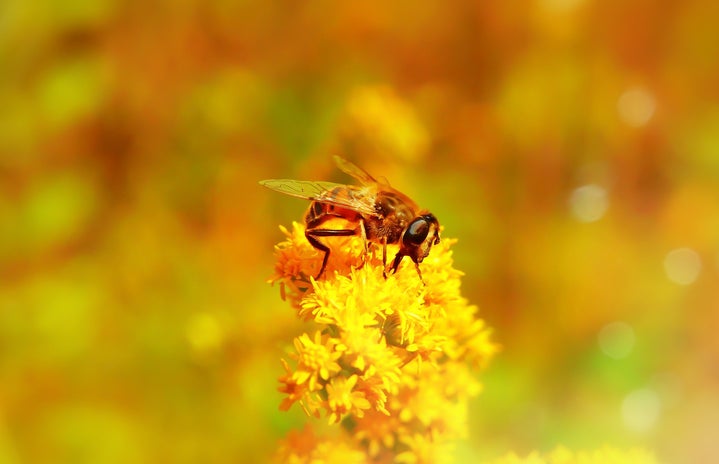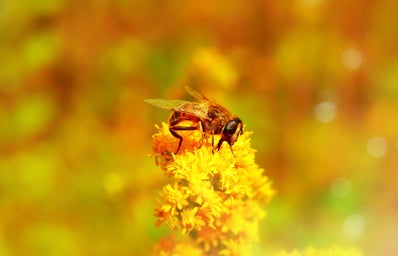As Earth Day approaches, you may be spending more time reflecting on the importance of being kind to our beautiful planet. If you are searching for ways to help be a part of the solution for our environment and our future, I implore you to consider taking action to help conserve one of the most crucial and vulnerable creatures in the world: the bee. If you’re not sure why this is a worthy cause or where to start, keep reading.

Why Are Bees So Important?
Bees are responsible for pollinating about ⅓ of all of the food we eat (crops which make up 90% of the world’s nutrition), and they even make some of our food. Out of the 20,000 species of bees in existence, 7 of them produce the honey we use for sweetening our food and beverages and enhancing our cosmetics. Bees also make antioxidant bee pollen, beeswax used for candles, wood polish, and more, as well as vitamin-rich and nutritious Royal Jelly. Bee pollination has proven to be even more important for crops than fertilizer and water, and bee pollen helps yield better-looking and tasting fruits. They also pollinate non-edible plants, with 80% of world pollination being attributed to bees. In fact, one bee colony can pollinate 300 million flowers in one day.

What is Happening to the Bees?
Due to intensive farming, pesticide use, pollution, habitat loss, colony collapse disorder, and climate change, the world’s bees are not guaranteed a future. The first bee species to be declared endangered in 2017 was the rusty patched bumblebee, and now 1 in 4 species are in danger of extinction, with half of North America’s bee populations in decline. In 1947, there were 6 million honeybee hives in the U.S., and only 2.4 million in 2008, resulting in a 60% reduction. Furthermore, beekeepers in the U.S. saw a 40% loss rate among their colonies in 2018. Bottom line: the bees are dying, and mostly from preventable causes that human beings are responsible for.

What Happens If We Don’t Save the Bees?
If the bees die out, species that depend on them for pollination would also die, causing a disruption in the food web and catalyzing a chain of endangerments and extinctions in other plants, insects, and animals. Without pollination, plants would also be much less fertile, meaning they would reproduce less, which also has an ecosystemic impact. Total bee extinction would also profoundly affect people. Without bees, 90% of all the world’s apples, blueberries, onions, carrots, cucumbers, as well as 100% of the world’s almonds, would be lost. Many veggie and fruit crops depend on insect pollination, meaning that, in a world without bees, there would be significantly less nutritious vegetation, meaning that our collective health would suffer, and food prices would skyrocket. While some of these crops can be hand-pollinated, this is a very labor-intensive and costly practice, which would further raise the cost of produce and would not serve as an adequate solution for the pollen crisis. In short, if we don’t save the bees, we are in for a world of trouble.

What Can I Do?
Now that you know the facts, here’s what you can do to help save the bees:
- If you’re financially able, think about donating to or buying from causes that are actively working to protect bees, like The Bee Conservancy, Beesponsible, or one of the many other organizations worldwide that strive to “bee” the change.
- Another important way you can financially support bee causes is to buy ethically sourced and sustainable honey, which often means buying local, which supports local beekeepers.
- If you have a garden, window box, or even just a pot filled with soil, you can help save the bees by planting plants that are native to your region, as well as single blossom flowers like roses, geraniums, and peonies, herbs like mint, lavender, sage, and rosemary, vegetables like cucumbers, onions, melons, and broccoli, and any type of fruit. These plants will provide bees with the nectar they need to survive and make honey with.
- Bees can’t speak for themselves, so it’s up to us to be their voice. Advocate for bees by writing to your mayor, legislator, homeowners association, or councilperson, and educate yourself and others about the importance of bees and ethical practices that can help save them.


